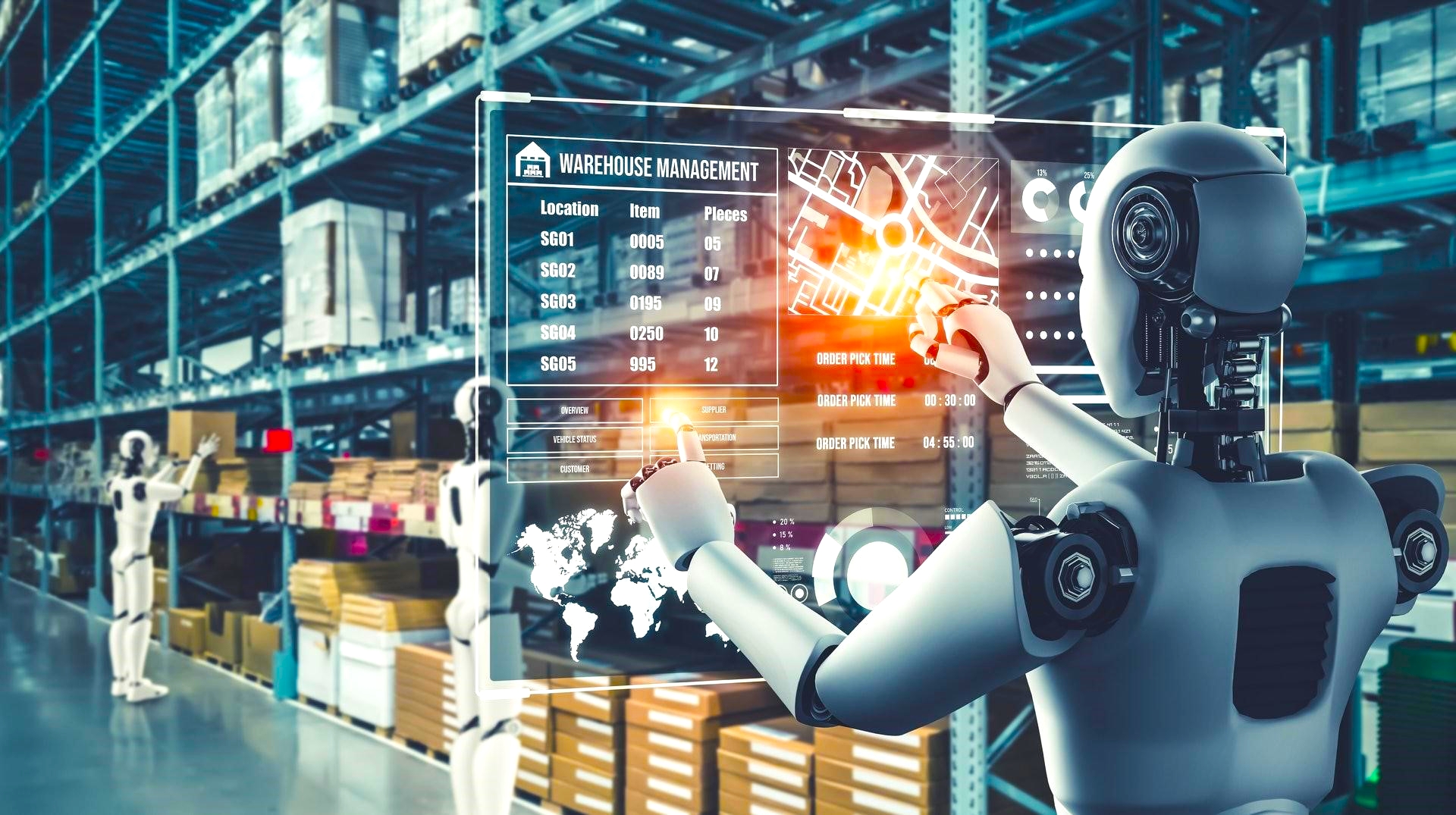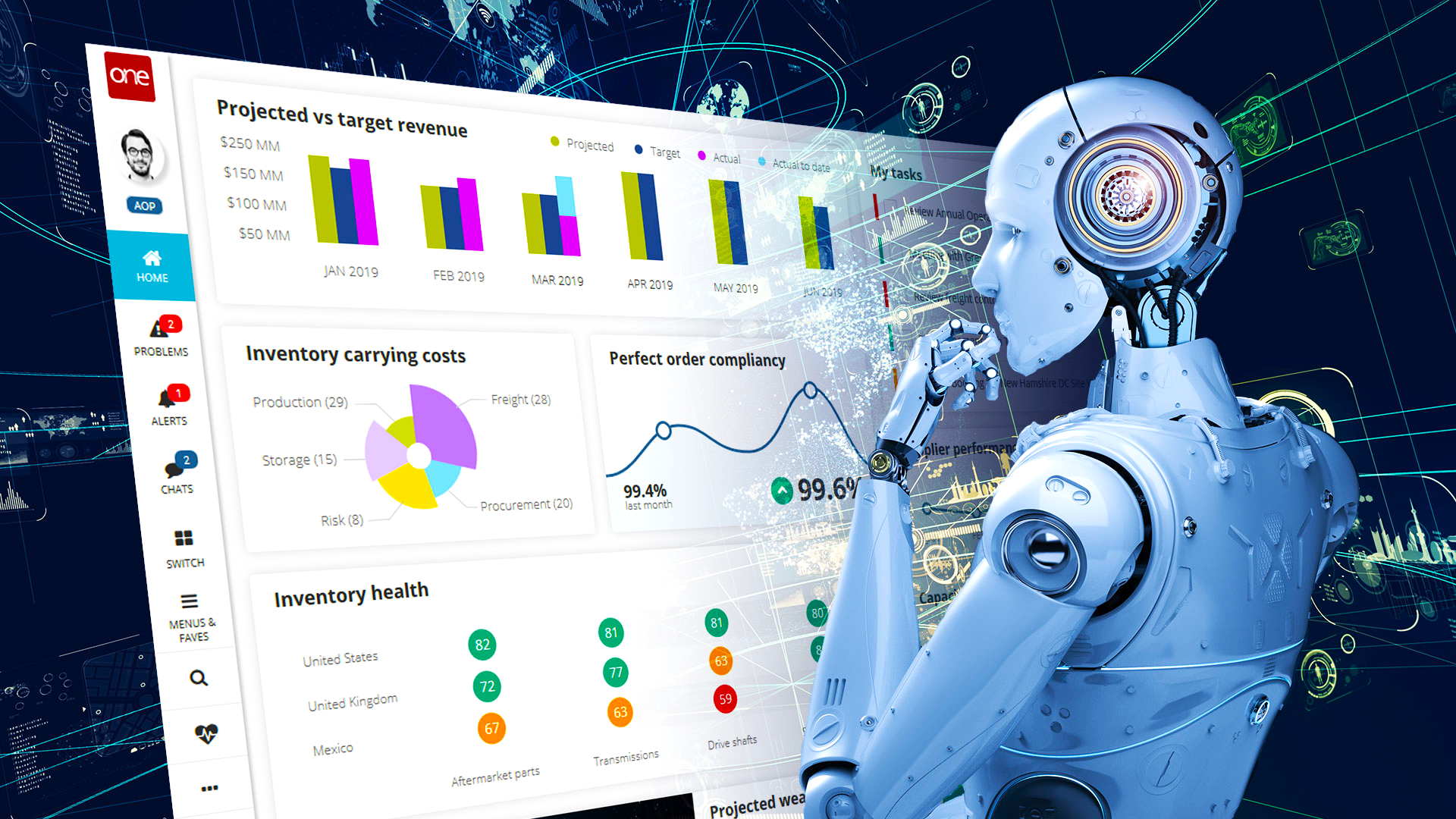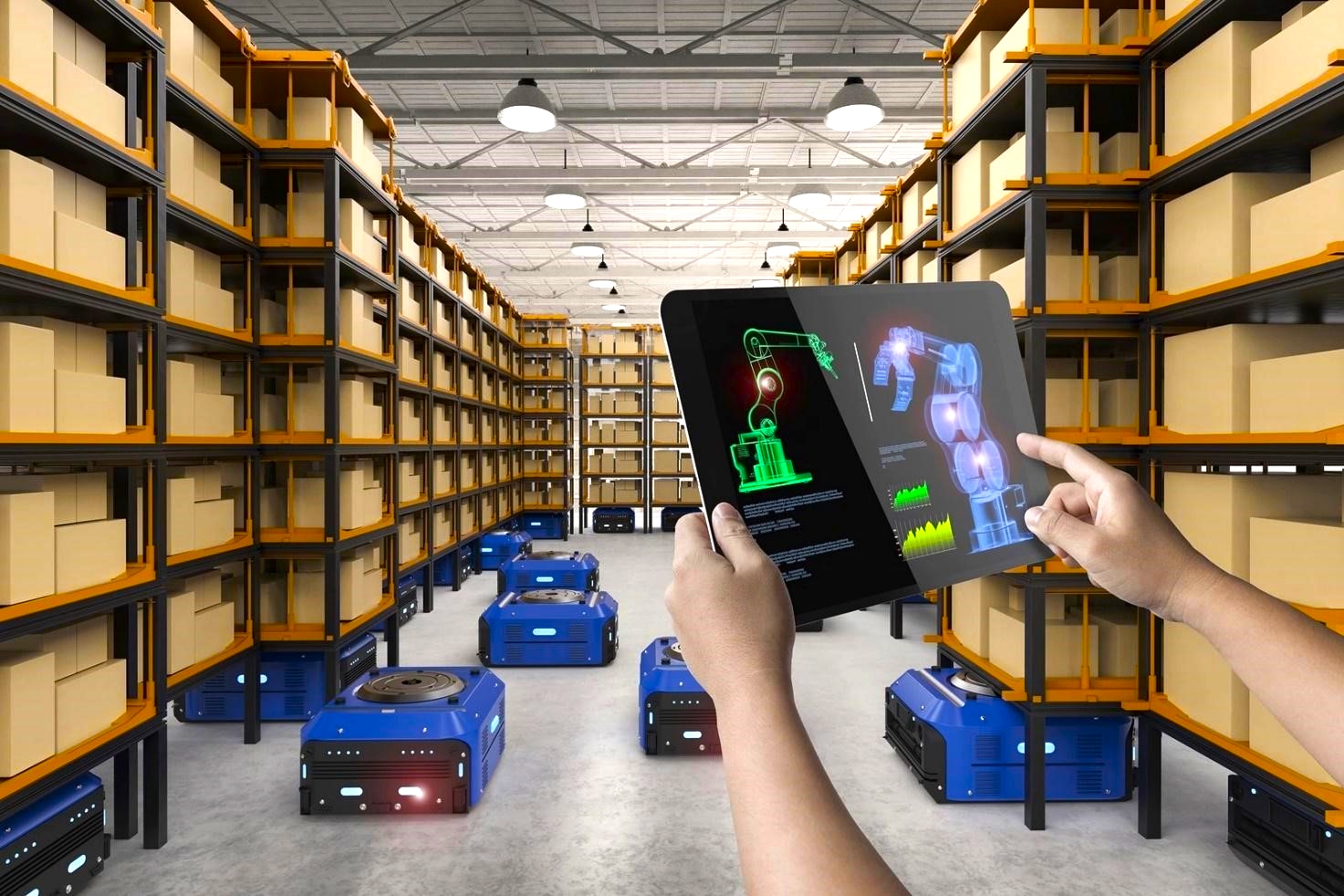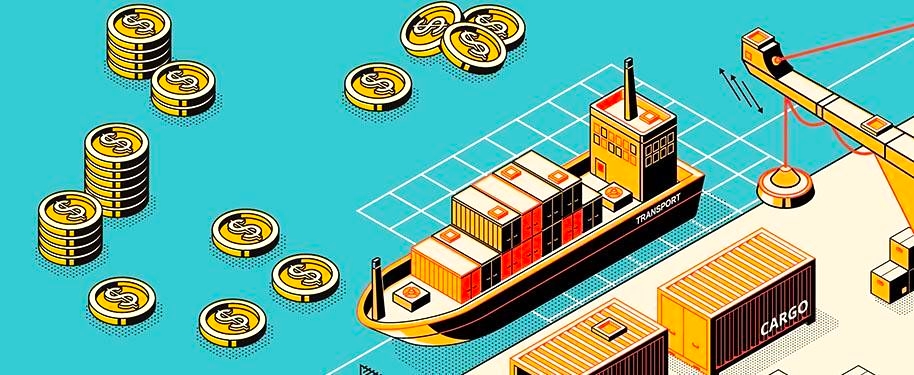As devices and mechanisms are advancing, business processes are getting sophisticated. Clear evidence of that is the global supply chain, with its complex structure and numerous participants. It’s vitally important to manage it correctly to avoid disruptions. In 2020, we witnessed how vulnerable the entire sector was in the face of unpredictable events. That experience has taught us to look for new efficient ways to foresee errors and eliminate them.
Such revolutionary inventions as artificial intelligence and machine learning help enterprises and agencies worldwide reach this goal. They contribute to enhanced visibility and transparency and make connectivity and prediction much more efficient. The role of AI in supply chain management is increasing each year.
The use of AI in supply chain management

Humanity has long strived to create reliable technical assistants that could solve problems of any complexity and overtake tiresome labor-consuming tasks. Once, such things as robots and artificial intelligence seemed just a dream. However, they are commonplace now.
Businesses worldwide have adopted AI for various purposes. Logistics is no exception. Robust solutions help companies to optimize warehouse processes and build efficient routes, predict traffic, detect fraud, and so on.
The ever-increasing level of these operations is possible thanks to machine learning. Its capacities are astounding, and models perform self-learning on vast streams of information. They analyze current trends, trace observable patterns, predict future situations, and suggest intelligent actions.

Machine learning in supply chain management has a bright future. One of its undeniable strengths is thorough demand forecasting.
Traditional processing of historical data and manual analysis take too much time and are prone to errors. Machine learning algorithms, on the other hand, can seamlessly analyze a variety of sources, including sales data, weather conditions, social media trends, demand, current geopolitical events, etc. They are tirelessly learning and improving, providing ever more impressive results.
For instance, algorithms are great at analyzing customer preferences or road conditions based on seasonality. They help take inventory management to the next level by predicting which products will be in high demand in a particular month. Algorithms efficiently analyze transportation data to build better routes and manage delivery schedules.
The amount of data generated by the supply chain is growing exponentially. Thus, machine learning becomes indispensable for businesses and helps them remain highly competitive.
These pioneering technologies see much more than the human eye. They can detect problem areas that logistics specialists might have never thought of and thus prevent major disruptions.
According to Statista, the adoption of artificial intelligence and machine learning in supply chain management will show considerable growth from 2022 to 2025.
Examples of artificial intelligence in supply chain management
This striking technology provides many opportunities for the efficient supply chain management. Its potential is immense, and businesses haven’t yet fully unlocked it. Its capacities will keep on growing.
Undoubtedly, there will emerge new scenarios for the use of AI in supply chain management. But we’ll pay attention to the most relevant examples in 2023.

Supply chain automation
The significant role of AI in supply chain management is obvious in automation. Nowadays, flawless workflows aren’t possible without them. No matter how skilled your specialists are, they won’t surpass robots in terms of performance, speed, and precision.
Therefore, logistics companies are widely adopting robotic process automation. It’s essential for modern warehouses where robots perform key operations. Another example is autonomous truck-driving systems introduced by such industry leaders as Amazon.
There are other examples of artificial intelligence in supply chain management that have to do with automation. These are document processing, product quality checks, and inventory management. One can be sure that many exciting innovations lie ahead in this field.

Predictive analytics
It’s always easier to act when you know what challenges you might face. Businesses cooperate with leading scientists who perform research, evaluate the situation, and give forecasts. However, with ML, you can achieve much more impressive outcomes. The knowledge base it has access to is immense, and its learning capacities are tremendous. With such a solid foundation, it gives extremely accurate predictions.
Smart algorithms and constraint-based modeling detect certain patterns and factors that determine the performance of the supply chain. This allows employees to make informed decisions concerning warehouses and inventory and handle stocks much more efficiently.
Such impressive results cannot be achieved with manual data processing. Moreover, it would be time-consuming. As machine learning in supply chain management is constantly evolving, its level of accuracy is growing as well. Technology-powered predictive analytics covers such areas as demand forecasting (both region-specific and global), bullwhip effect prevention, and inventory optimization.
A good example of robust predictive mechanisms is C3 AI Inventory Optimization. With its help, businesses effectively manage inventory levels of raw materials and finished goods. They keep them to a minimum level but show the required quality of customer service.
Another success story is related to the world-famous IKEA. The company built a highly efficient omnichannel tool to make demand predictions even more accurate.

Streamlining routes
Another example of artificial intelligence in supply chain management is building efficient routes. Fast delivery is the core of logistics and an important condition for success. Consumers want their orders to be shipped as quickly and risk-free as possible. Any inaccuracies or delays can provoke customer churn. No one is willing to wait, especially if there are other market players ready to perform delivery flawlessly.
Smart technology significantly optimizes this process. It assesses all possible variants, processes traffic and weather information, and offers the best possible route. This doesn’t only improve performance and efficiency but significantly contributes to nature protection. By reducing routes, companies cut fuel consumption at the same time. And this results in lower carbon emissions. Increased sustainability makes the important role of AI in supply chain management even more obvious.

Enhanced vehicle maintenance and driver safety
Using IoT sensors, artificial intelligence analyzes the condition of vehicles moving through the supply chain. This powerful tool helps to assess truck performance, predict wear and tear and potential breakdowns, and make maintenance recommendations. This greatly increases the longevity of fleets. Specialists remove vulnerable vehicles and repair them before further exploitation.
Modern cars have the latest equipment, which is easy to control. For example, powered cameras track and analyze tire tread based on miles driven. This allows specialists to change parts when the maximum level of wear is reached.
With the same IoT functionality, AI also efficiently assesses driving behavior and helps to avoid accidents or breakdowns. Improper speed and braking or reckless driving are no longer problems, as fleet managers receive information on all critical deviations in real-time. They can send drivers for additional training.

Optimized loading processes
Specialists must carefully analyze the loading and unloading of goods. This demands time and is labor-intensive. They must accurately assess the most efficient ways to get goods to the vehicles to improve the overall efficiency of the process. AI also directly affects the speed of transportation and delivery, as well as customer satisfaction.
In a matter of seconds, this tool can estimate the size and weight of a shipment and match this information to the capacity of a truck. It searches through the fleet database and selects the right vehicle and the best way to stack and place goods. All this with consideration of other items that are moving with the same shipment. This process minimizes the risk of cargo damage.
Moreover, AI detects equipment failure and suggests the necessary changes.

Advantages of technology-driven supply chain management
The role of AI in supply chain management is great. What once seemed like science fiction has become a reality. Innovative tools no longer surprise anyone. Let’s look at the benefits they bring to logistics companies, shippers, carriers, and others.
Increasing cost-efficiency
Rapid and cost-efficient operations are the primary goal of any business. But delivering goods across the globe is expensive. Logistics companies need robust vehicles, professional drivers, cutting-edge software, and many more. As any business, they want to cut expenses and generate maximum revenue. All this is possible with the power of innovative technology.
Smart algorithms help companies to select the best shipping rates. Entrepreneurs get access to a centralized database, evaluate the existing options, and pick those that meet their business goals. The technology also allows them to manage contracts with carriers seamlessly. As a result, agencies operating in this sector streamline operations, minimize expenses, and improve overall profitability.
Moreover, with the wider adoption of autonomous vehicles, robotic intelligence will help reduce driver costs. This is the aim for the future, though, as not every country can boast of a top-level infrastructure for such innovations at the moment.

Improved operational efficiency and transparency
Some operations (loading and unloading goods, driving, etc.) require great strength, stamina, and concentration. This affects the health of human workers and creates risks. Machines, on the other hand, can perform such repetitive tasks without interruption. Of course, they need timely maintenance to work flawlessly.
Machine intelligence helps managers and workers to see all stages of the supply chain in real-time, detect operations resulting in success or failure, and assess risks. Processing large amounts of data from a variety of sources makes this possible.
Smart technology analyzes delivery times, inventory levels, order processing times, and other operations and identifies bottlenecks in the workflows of a company. This helps predict delays or other disruptions in operations. If you want to improve your overall efficiency, you must know the potential risks. For example, technology can help you get information about weather conditions and natural disasters and suggests options on how to realign the route in the affected area. By analyzing current geopolitical trends, it can predict the situation at borders or increase/decrease demand. Knowing all this, businesses can take proactive measures and minimize the impact of external factors.
Demand analysis can minimize the cost of unnecessary goods and provide warehouses with the products that customers need.

Enhanced quality control
Preventing a problem is more reasonable and less costly than fixing it. Algorithms detect quality issues earlier in the supply chain. Thus, end consumers are secured from getting defective products.
AI has access to multiple sources of control, including pioneering IoT sensors. They send alerts when something goes wrong. For instance, deviations in temperature or humidity can damage product quality, so it’s vitally important to trace such anomalies in warehouses. And this is not about premises only. Sensors installed on containers and vehicles control objects on the move. So, permanent control is possible at any stage of the chain.
Improved decision-making
Entrepreneurs must make informed strategic decisions and see far ahead to stand up to the fierce competition. Artificial intelligence effectively helps with this by providing processed information from multiple sources (sales, customer, inventory, truck, and transportation infrastructure data, etc.). Machine learning in supply chain management with its ever-improving algorithms contributes to this as well.
One advantage, in this case, is fast and accurate analysis. It would take a lot of time for a human to perform such operations, while smart algorithms can do it in a matter of seconds. For example, based on previous sales and deliveries, it can analyze customer behavior, which will help build a more effective marketing strategy.
What’s more, artificial intelligence prevents humans from committing certain mistakes.

Conclusion
The use of AI in supply chain management is vast and the capacities of intelligent systems are impressive. AI shapes the future of the logistics industry and makes workflows much more efficient. We’ll see even more striking examples as this sector keeps on growing.
Therefore, companies need robust digital solutions to stay competitive. If you are operating in this industry, a partnership with an experienced IT provider engaged in supply chain management software development is a must. Top specialists will assess the demands of your firm and build an innovative product that fully meets your goals.
















